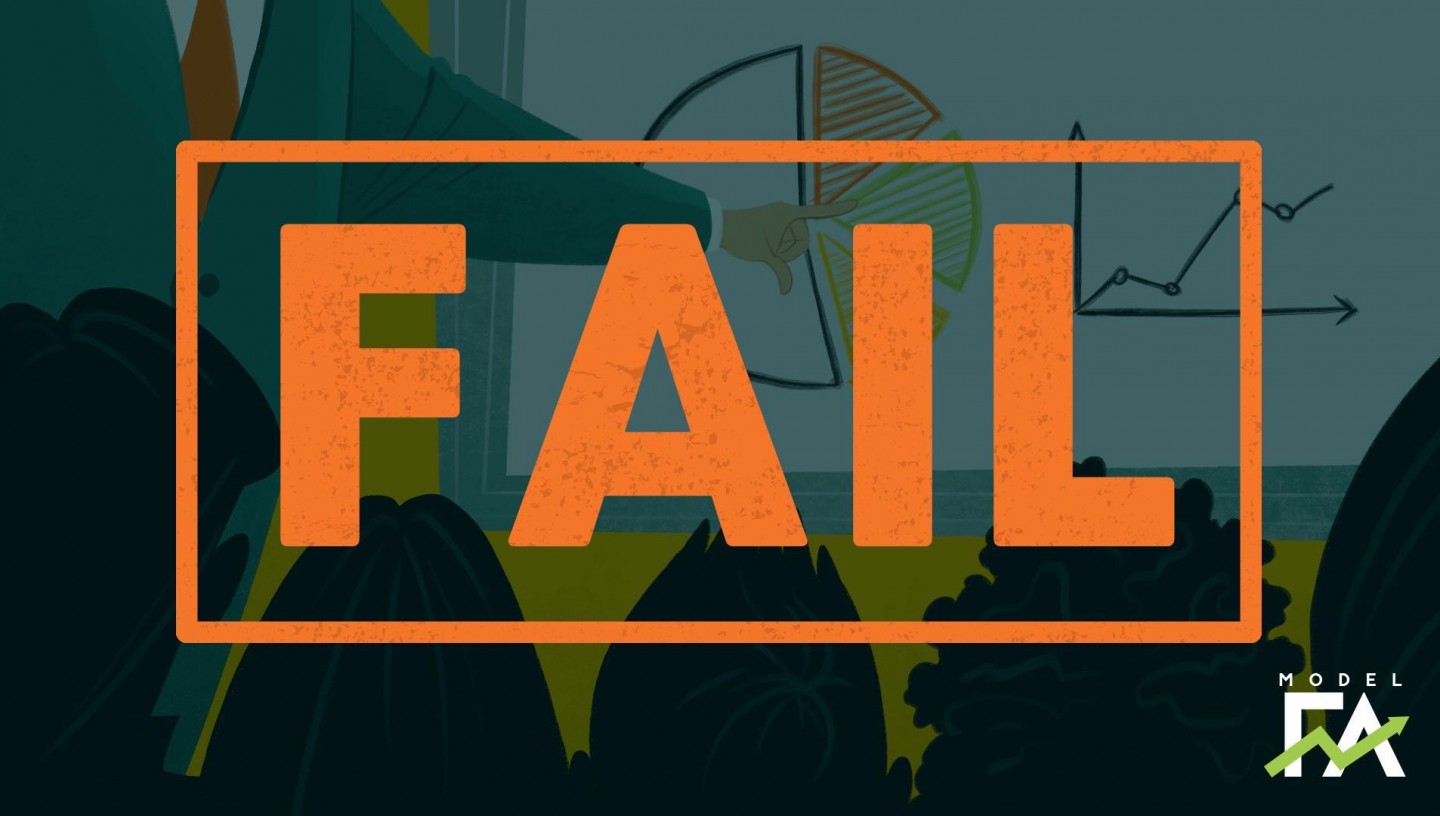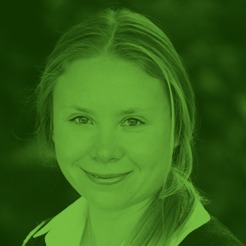5 Reasons Why Financial Advisor Seminars Fail
02.13.20 | Natalia Autenrieth, CPA | 0 Market
Financial advisor seminars are major commitments of both time and money, but they can prove to be valuable business-building tools when executed properly. And yet, so many advisors struggle to pull off a successful seminar. In this article, we outline five common mistakes made in planning and executing a financial advisor seminar, and tips on how to avoid them.
Every industry has its horror stories. One for the financial services industry is about failed financial advisor seminars. The thought of empty seats, prospects who just come for the food, gadflies who live to disrupt your presentation, and expensive leftover marketing collateral makes advisors cringe. In fact, reading or hearing a few stories like that may be enough to turn an advisor off the idea of hosting a seminar completely.
On the other hand, we also see success stories. Some advisors seem to hold the golden ticket to financial advisor seminar success. To an outsider, it might look as though they are acquiring millions of AUM just by being in front of a room full of prospects for a few hours.
What do the successful seminar hosts know that other advisors don’t? And, most importantly, what non-obvious decisions and activities behind the scenes make a financial advisor seminar a success?
To answer those questions, let’s look at five common financial advisor seminar planning and execution mistakes. If you are considering a seminar in 2020, you owe it to yourself to study these mistakes and avoid them.
Mistake #1: Inadequate Promotion
Promoting your event is one of the most underrated, yet crucial steps in executing a successful seminar.
Getting this right takes time and attention to detail. If a single Facebook post on the company’s page was enough, everyone would be filling rooms!
Promoting the event on your social media platforms is a must, as well as announcing the event to your email list. However, you’ll need to explore other methods of getting the word out. Generally, the more channels, the better.
Here is a list of options.
- Facebook ads: You can run ads on your business page, or on your professional page if that’s what you use for visibility and connection. Connect the ad directly to a signup form for a simple, one-step sign-up process. Alternatively, you can direct an ad to a landing page that includes all of the details for the event, as well as “Key Takeaways” and reasons why a prospect should attend. Make sure that you capture the information about each prospect who signs up, and that your tech tags each one for future follow-up.
- Google ads can be used in a similar manner. Consider using a countdown function to create a sense of urgency. Set audience filters to improve the quality of prospects who show up. Also, remember to turn the ad off after the event! It’s an easy step to forget as you get busy with follow-up.
- Email Campaigns: Your email list is a valuable asset.Send them an invitation to the upcoming seminar and schedule a series of automated reminder emails to follow your initial announcement.
- Direct Mailers: This is the most “traditional” way of promoting financial advisor seminars. Direct mailers are costly, and you should be prepared that the response rates aren’t what they used to be 20 years ago. However, we have found direct mailers to be worth the investment if you target the right zip codes. Keep in mind that you will have to design the mailer, or work with a direct mail service provider to create and approve the layout. Don’t get deterred by the “expensive” factor: there are many size, format, color, and finish options that suit different budgets.
- TV spot: Connect with a local news provider to inquire about the possibility of a short segment where you provide financial tips and mention your upcoming event.
- Announcement in the local paper: Consider submitting a press release or running a small one-time ad.
- Referrals from COIs: Ask trusted COIs to share the details of an upcoming event with their clients (you might offer a ready-made write-up that they can use to make referrals even easier).
No matter which promotion methods you choose, be sure to track your results. Build your prospect pipeline in a way that allows you to monitor where each person came from. It’s best to do it automatically and behind the scenes: once they get to the event 2-3 weeks later, prospects often don’t remember how they found out about the workshop.
Remember also that the outcome of your seminar will rely on the quality of your attendees. Therefore, everything from your choice of venue and topic to your outreach plan should specifically target and attract your ideal client. The “buying unit count” is less important than making sure that they count as qualified prospects. Don’t aim for perfection, as it’s unlikely that your audience will be 100% pre-qualified.
Mistake #2: Errors in Seminar Logistics
Logistics refers to the who, what, when, and where of your event.
Bad parking, poor lighting, a noisy venue, or an ill-chosen date or time can be the defining factor that makes a difference between a positive and negative outcome.
Who? Who is your target audience? Your audience should reflect one of your client segments. If you happen to serve more than one type of client, choose just one focal point for each event. That makes targeted advertising and promotion possible (and less expensive).
What? What will you talk about (the theme for the seminar)? Your messaging and value proposition should be tailored to attract your target market. Advisors often make the mistake of wording the value proposition in advisor terms which don’t resonate with the audience. Be sure to use authentic client language and frame key take-aways and reasons to attend in words that your prospects would use themselves.
When? The day and time you hold your seminar can have significant impact on both attendance and engagement. Here are some important notes and trends to keep in mind.
- Mondays and Fridays are challenging days to fill the room.
- Tuesdays through Thursdays work better.
- Avoid scheduling an event near major holidays, as ad and venue rates will likely increase, and attendance could suffer.
- As far as time is concerned, a 4:00-4:30PM start time works well for seniors. A 6PM-7PM start time is more appropriate for Boomer-focused events.
Where? Where you host your event can speak volumes about the type of seminar the attendee can expect. Seminars hosted at a local college, community center, library, or auditorium will indicate that your seminar is educationally focused. Seminars hosted at a restaurant or other food-centric venue indicate that the tone of your seminar will be conversational and laid-back. Make sure that your content aligns with your venue: your audience might be more prepared to learn about the intricacies of Roth conversions in a classroom than in a local wine bar.
Mistake #3: Failure to Engage
Individuals who take time out of their schedule to prepare, travel to, and attend your seminar aren’t just coming for the information. They are also coming for the chance to interact with others, including you, and to learn more about how you can help them.
This is your time to shine. Use this opportunity to show your human side. Humor is always a great way to build connections in a room, so don’t be afraid to make your audience laugh.
Your goal should be to provide the kind of experience a prospect would willingly continue, attend again, and share with their friends! This is the type of experience that will lead to a discovery conversation and eventual client relationship. So, be careful with stuffing your slides with thousands of technical details that will make a layman’s eyes gloss over. Instead, tell memorable stories and connect with prospects on the human level.
Mistake #4: No Follow-Up
We all live full and busy lives. Even if an attendee had a great experience at the workshop, their competing priorities at home and at work may deter them from reaching out.
This is where many advisors drop the ball. Just because the seminar has ended doesn’t mean the job is complete! There are still opportunities to build relationships, and the sooner you can schedule a follow-up appointment, the better.
Be proactive with your follow-up. Schedule appointments within a two-week window of the event to have the best chance of maintaining that sense of urgency you’ve worked so hard to build.
Mistake #5: Advisor Isn’t Cut Out for Public Speaking
There are some advisors who are not comfortable or skilled at commanding a room the way a seminar demands. They may be amazing in a one-on-one setting, but they don’t have the presence to engage and compel a bigger audience.
Here, as in other areas of the financial advice profession, it’s important to know your strengths. The time and monetary investment of a seminar may not be worth it for the advisors who don’t have at least a foundational competency in public speaking (and a strong willingness to invest time and energy into improving). If you’re determined to make it work for you, seek out presentation coaching, and consider role-playing with peers or friends to practice your skills.
Financial Advisor Seminars, when done right, are big projects with big price tags.
You can expect to spend anywhere from $300-$800 to rent a space for your presentation (if you are planning to serve a meal, the price tag could go well above $1,000).
You’ll also need to budget for professional-looking collateral (presentation, handouts, banner stand, etc.) and promotion. You might get lucky pitching the seminar on a local TV news segment, but most advisors don’t get that deal (at least not on the first go-around). A successful seminar demands a commitment of time and money to lay a solid logistical foundation and promote the event in order to get a worthwhile return on your investment.
This is the tricky part. If you are looking for a seminar partner that can open doors to educational facilities (like your local college or university) and provide content and marketing support for your workshop, check out America’s Retirement Forum. We have taken the lessons of helping over a hundred advisors host successful workshops, and wrapped them into an education-forward, done-for-you financial seminar package. All you have to do is choose the topic, the date, and the location — and follow the checklists to seminar success.
Advisors who are interested in joining America’s Retirement Forum as an affiliated educator can click on this calendar link and save a spot on their calendar!
Recommended reading
- 5 Financial Advisor Prospecting Ideas That Work in 2020
- Building a Financial Advisor Marketing Plan that Works
- Facebook for Financial Advisors: 3 Myths, Debunked
